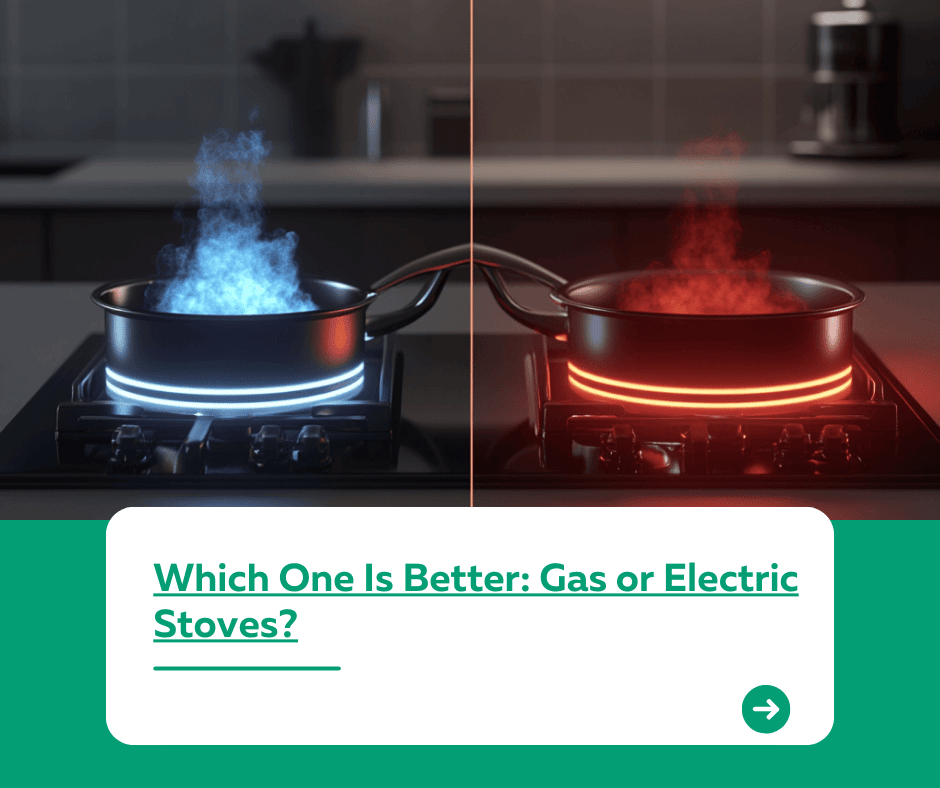
Introduction
When setting up your kitchen, the choice between a gas and an electric stove is one of the most critical decisions you’ll make. Which one is better: gas or electric stoves? Both have their pros and cons, and your decision will depend on your cooking style, budget, and kitchen setup. In this article, we’ll compare gas and electric stoves to help you make the best choice for your needs.
1. Performance and Cooking Experience
Gas Stoves
- Advantages:
- Immediate heat control, perfect for quick temperature adjustments.
- Even heat distribution, ideal for cooking with woks and sauté pans.
- Visible flame makes it easier to gauge heat levels.
- Disadvantages:
- Requires a gas line installation, which may not be available in all homes.
- Open flames can pose safety risks.
Electric Stoves
- Advantages:
- Smooth, flat surfaces are easier to clean.
- Consistent heat levels for baking and simmering.
- No open flame, making it safer in households with children.
- Disadvantages:
- Slower heat adjustments compared to gas.
- Glass or ceramic tops can be prone to scratches and cracks.
2. Energy Efficiency
- Gas Stoves: Use natural gas, which is generally cheaper than electricity, but lose more heat during cooking.
- Electric Stoves: More energy-efficient overall, as they lose less heat, especially induction models.
3. Cost Comparison
Initial Cost
- Gas Stoves: Higher upfront cost due to the need for gas line installation.
- Electric Stoves: Typically more affordable initially, especially standard coil models.
Operational Cost
- Gas: Lower operational costs if natural gas is cheap in your area.
- Electric: May cost more in areas with high electricity rates.
4. Maintenance and Durability
- Gas Stoves: Require regular cleaning of burners and gas lines but are generally durable.
- Electric Stoves: Easier to clean due to flat surfaces, but glass tops can be more delicate.
5. Environmental Impact
- Gas Stoves: Emit carbon dioxide and other pollutants during use, contributing to indoor air pollution.
- Electric Stoves: Can be more environmentally friendly, especially if powered by renewable energy sources.
6. Choosing Based on Your Needs
- Gas Stove: Ideal for home chefs who prioritize precise temperature control and enjoy cooking techniques like stir-frying or flambéing.
- Electric Stove: Better for those who want an easy-to-clean surface, consistent heating, and a safer cooking environment.
Conclusion
Both gas and electric stoves have unique advantages and disadvantages, making the choice ultimately depend on your preferences, cooking habits, and kitchen setup. By weighing the factors discussed here, you can decide which stove suits your home and cooking style best. For more kitchen tips and appliance reviews, visit our kuestion.com .




